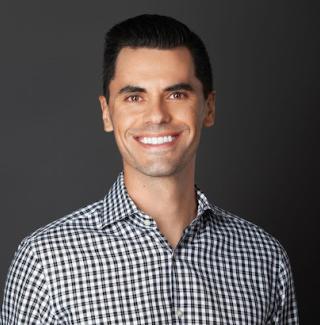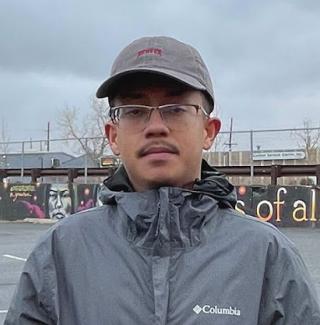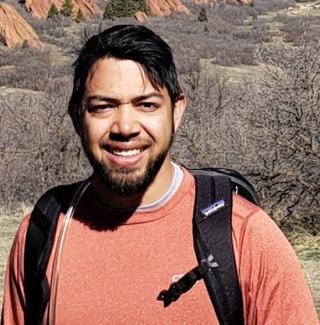Ritchie School Masters Students Receive Research Fellowship to Study Emerging Blockchain And Crypto Technologies
Authored by Clayton León, Marcus Paz, and Leo Walker
Blockchains, cryptocurrencies, and the metaverse have captured the world by storm over the last two years. However, these terms and technological innovations have also received skepticism and doubt over their feasibility.
In partnership with Phemex, a crypto company located in Singapore, Ritchie School of Engineering and Computer Science students Clayton León, Marcus Paz, and Leo Walker have received a $9,000 research fellowship to study the impacts and prospects surrounding these emerging technologies.
While participating in the fellowship, León will examine the top layer 1 blockchains and will assess the competitive overview for Phemex investors. Paz will study another hot topic in the industry- cryptocurrency mining’s impact on the environment. Finally, Walker will contribute industry-leading research on how the real estate sector may develop or be integrated with blockchain technology and NFTs.
Student Backgrounds
Clayton León
Hometown: Denver, Colorado
Program: MS in Data Science
Interests: cryptocurrency; layer 1 blockchains; data science; decentralized finance
Clayton León, a Masters in Data Science student, is contributing significant research to the Phemex team. Throughout his fellowship, Clayton will conduct a competitive overview of different layer 1 blockchains. His research and extensive background in the investment management space will help investors thoroughly understand the Ethereum, Cardano, Avalanche, and Solana blockchains. All four of these blockchains have a combined value of $170 billion.
Marcus Paz
Hometown: Aurora, Colorado
Program: BS in Computer Science; minors in Physics and Math
Interests: machine learning (ML); artificial intelligence (AI); cryptocurrency mining
In his research with Phemex, Marcus Paz will examine how cryptocurrency mining impacts the environment. He’ll conduct extensive research regarding the pros and cons of cryptocurrency mining, gather and analyze sustainability reports from countries that have large mining operations, and predict what the future has in store for the cryptocurrency mining industry. Marcus is passionate about astronomical and dark matter models that involve Modified Newtonian Dynamics.
Leo Walker
Program: MS in Data Science
Interests: finance; investing; NFTs
Throughout the fellowship, Leo Walker will research how blockchain and NFTs can complement and potentially disrupt the real estate environment. This will involve examining the current platforms leveraging NFTs in the real estate sector and summarizing their benefits and shortcomings. Walker is a data evangelist and is interested in a broad range of finance and investing topics. In his free time, Walker is an outdoor enthusiast who loves skydiving, mountain biking, and snowboarding.
Q&A With Clayton, Marcus, and Leo
To demystify and clarify the blockchain/crypto/finance space, please describe your fellowship with Phemex to someone from another planet.
Clayton: Blockchain technologies are a new way to bring transparency and immutability to transactions between institutions, individuals, and consumers. There’s typically no need for a centralized governing body and the network depends on its adopters and supporters. Most blockchains have an associated token or coin used to pay for transacting on the network. Some investors view these tokens or coins as early-stage investments in the underlying technologies and possess a thesis of mass adoption which should lead to price appreciation if the supply and demand dynamics hold true.
Marcus: Blockchain technologies are a new technology/database used to collect data in a structured way. For example, think of someone owning a piece of land and being able to see the records for how they became the owner of that land. Many blockchains use transaction ledgers that allow for transparent transactions among the owners of the cryptocurrency. Since everything we do today relies on technology, using multiple blockchains allows for increased security where hacking becomes impossible.
Leo: Blockchain is a relatively new technology that helps to decentralize the control of transaction ledgers and increase transaction transparency for all users. Since the technology is so new many people don’t understand the basis of it or its potential applications. We have partnered with Phemex to research a specific use case to help others understand the current and future use cases of the technology.
How does your experience at Phemex connect to what you’re learning at the Ritchie School?
Clayton: Most blockchain ecosystems and crypto exchanges generate vast amounts of data. Data Science can be used to gain valuable insights from on-chain activity or trading activity at exchanges. The Ritchie School’s focus on real-world application in its curriculum will prove valuable in this space as adoption grows.
Marcus: I’m relatively new to the realm of Data Science, but I hope that through partnering with Phemex and in future classes at Ritchie, I’ll be able to learn much more. Many professors in the Computer Science department are focusing on real-life applications of blockchain technologies and researching ways to implement them. So I hope to increase my knowledge through them as well.
Leo: As I learn more about different Data Science workflows, it’s apparent that a key part is access to clean and structured data. Most blockchain systems have a standardized block structure of their various attributes, and this can be very useful in any data science workflow. Since it’s decentralized, any user should have access to viewing the information on the blockchain unlike what we have now where centralized companies control who has access to the data on their system.
Do you have any tips to share about balancing being a student and participating in an outside research fellowship?
Clayton: I find value in allocating specific time slots to all things school-related. In my experience, if I spend much more time than I allocated in one sitting, I start to lose the mental acuity to make any tangible progress. Maintaining a balance of physical activity and sleep helps me to re-center and make more efficient use of my time.
Marcus: I’ve been participating in research at DU in the Physics department, and I’ve found one important thing – participation in these activities allowed me to understand the importance of proper time allocation. Finding something you enjoy is important because you’re not struggling to understand these topics, thus making these learning experiences much easier. If there’s one thing to take away from my experiences, it’s to stick to your passions and don’t be afraid to venture out.
Leo: Try to find a fellowship that revolves around a topic that you’re truly interested in. The Phemex fellowship was perfect for me because even without it I would still be dedicating time to research and write about my topic. But this fellowship gives me access to additional resources and a platform to reach more people and receive feedback than if I published it on my own.
For those interested in exploring Clayton’s, Marcus’s, and Leo’s profiles and downloading their research, visit the Phemex Student Foundation.





